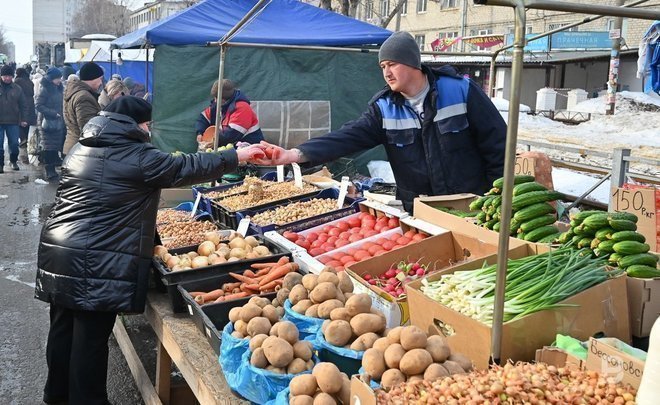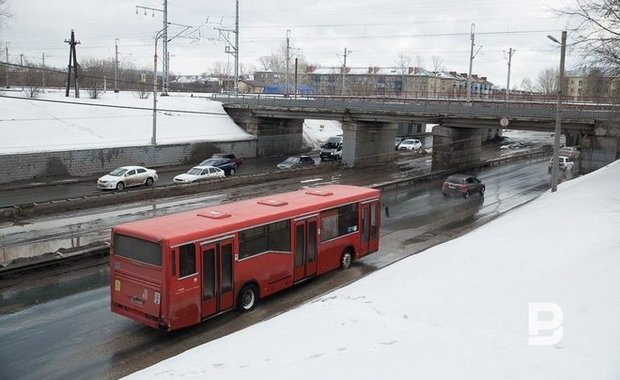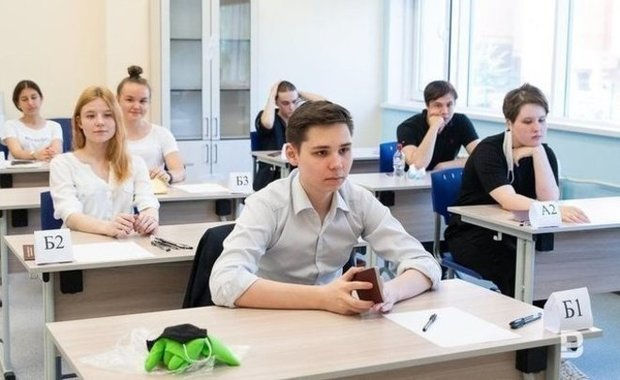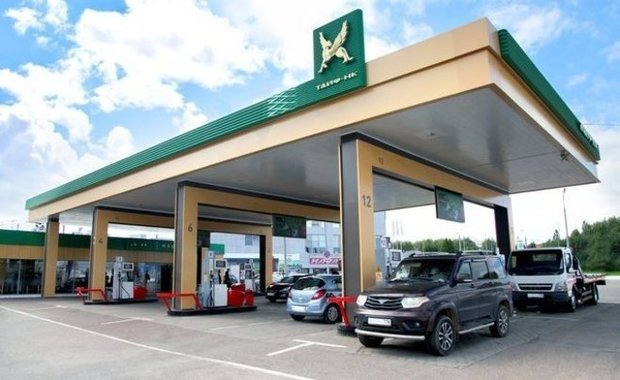‘Consumption volumes are the problem’: prices for staples rise by third in Tatarstan
Prices for some products and popular services have increased by 25-30% by the start of the year

A record growth of food prices has been registered around the world. Prices in Russia have also gone up significantly. And though general statistical figures do not look scary — food prices have surged by 10% in general, while the cost of industrial products and service have by 12-13% — there are absolute price record-holders. Tatarstan is not an exception. As Realnoe Vremya found out, for instance, prices for bread and oil have appreciated by 11%, detergents — have by 27% and medical services — by 15%. Read in our report about how life in the republic has become more expensive and how this problem is solved.
Without sweets
Realnoe Vremya examined results of the official price dynamics survey for consumer products and services in the republic in Tatarstan in early February. As it turned out, prices for confectionary products have increased by 20% over the year. Sugar has by 13,7%, butter and oil — by 11,8%, bread and pastries — by 11,2%.
One could comfort oneself with the thought that sweets and oily products are bad, but beneficial foods have become less affordable too. Prices for fish have climbed by 14,%, dairy — 15,5%, cheese — 16,6%, meat — 9,3%.
According to the State Statistics Service, bread has become 11,2% more expensive, pasta and grains — almost by 9%, meat — by 9,3%.

Alcohol prices have gone up in price notably too — by 8,3%, so it has become more difficult to drown the sadness because of high prices with a strong beverage.
Expensive detergents
It has been considerably much more expensive to keep the home clean and care about one’s personal hygiene: prices for perfumes and cosmetic products have risen by 30,9%, washing products and detergents — by 26,9%.
A hike in prices for electronic devices and household equipment has turned out to be less sharp but significant too — by 18,2%. While paper and cardboard products have augmented by a third — by 32,3%.
Furniture has become 10% more expensive, hosiery products have gone up by 10% too, shoes have by 7,3%.
Watch out: prohibitive health care
The recommendation to care about one’s health amid the price surge today can seem ambiguous. To stay healthy, one needs to do check-ups, buy supplements and ideally tickets to resorts. And if not, medicines and new examinations will be needed. But both options are expensive.

Over the last year, health services have added 19,5%, medical services have by 15,2%, medical products — by 9,8%. And a trip to a health resort can become an expensive joy because of ticket prices: an intercity bus fare has become 12,8% more expensive.
However, one can get some health resorts by plane, abut here some advantage, though a small one, awaits us: an economy ticket price has fallen 2,2% over the year.
Using the most harmless transport in the city — electric public transport — has become 6,2% more expensive. A trip in suburban train will be by far more expensive — prices have grown by 8,7% here. And the priciest and most popular public transport — urban bus — has been 9,1% more expensive.

Are housing and children luxury?
Utility bills in Tatarstan have increased by 15,8%, housing bills have by 4,9%, according to the Tatarstan Statistics Service.
As Chairman of the Tatarstan State Committee for Tariffs Alexander Grunichev said, the average highest growth of the utility bill in Kazan was 13%, in December it was 10% (compared to the July bill). Utility tariffs in nine cities and 10 settlements of the republic have increased by 12% since December — investment programmes required money.
Hotel services and rent rates have risen by 7,8% — this probably played some role in this hike. Communications services have become costlier too — by 8,6%.
One has to pay for the happiness of having kids: colleges have become 7,4% more expensive, pre-school services have — by 5,3%.

However, to be fair, it is worthy of mentioning that there have been found several categories of products and services whose prices haven’t changed or gone down. Petrol hasn’t almost changed (with growth in diesel prices by 6,5%). While the biggest fall in prices was for eggs — by 13,2%.
“The high-base effect is on at the moment”

As for petrol, it would also go up, she specified, if not state price regulation:
“This is called reverse damper: the federal budget paid huge money to oil companies to compensate for the price difference compared to those in the world market.”
“Should we wait for such a sudden price rise in 2023?” Realnoe Vremya asked the expert.
“During the first months of the year, it is unlikely. If only the ruble rate starts to fall seriously. Last year’s high-base effect is on at the moment when prices grew rapidly. But imports will become pricier if the ruble weakens.”

“Prices grow, domestic demand shrinks”
Answering a question about the consequences of such a rapid growth of prices for vital products and services, economist Rustem Shayakhmetov noted that a deficit of staples both in Tatarstan and across Russia is the first thing that shouldn’t be expected.
“There isn’t going to be a deficit. Staples — bread, milk, meat, clothes — won’t disappear. The question is how much they are going to cost and what income the population will have,” the expert noted.
Can we forecast the incomes?

According to him, “the problem is not as much in production volumes as in consumption volumes.” Dairy consumption is already reducing. A fall in domestic demand leads to a lower birth rate. As a consequence, the consumption of baby products decreases, the expert continued.
Shayakhmetov added that the ratio of domestic demand and exports is two-thirds to one-thirds in Russia today whereas exports in Europe and US is about 12%, the rest is domestic demand:
“Given this and in case there aren’t big cataclysms in the short run, 4-5% inflation can be expected this year. And it is necessary to consider that we are not a closed system. As soon as prices surge in the world, we feel it. For instance, why sugar appreciated — because sugar prices increased in the world. And palm oil that not only became more expensive in dollars but also its supplies to Russia were disrupted and new logistic systems had to be created is used in confectionary products.”
“Stagnation awaits us”
Russia’s former Economy Minister Andrey Nechayev said that on 20 February last year most of the population including the economic bloc of the government didn’t expect the events would develop in a way leading to a price growth.

In answer to the question if a further rise in prices should be expected, Realnoe Vremya’s interlocutor replied this way:
“There are different forecasts, but I think positive stagnation after a fall in GDP during the pandemic-related crisis and last year’s drop awaits us at best, I think. The Russian Statistics Service talks about a 12% price rise, while independent researchers forecast a 40% hike. But even the Central Bank itself has been fighting inflation in the last years, it doesn’t expect to reach the 4% target soon, it is a matter of the remote future.”